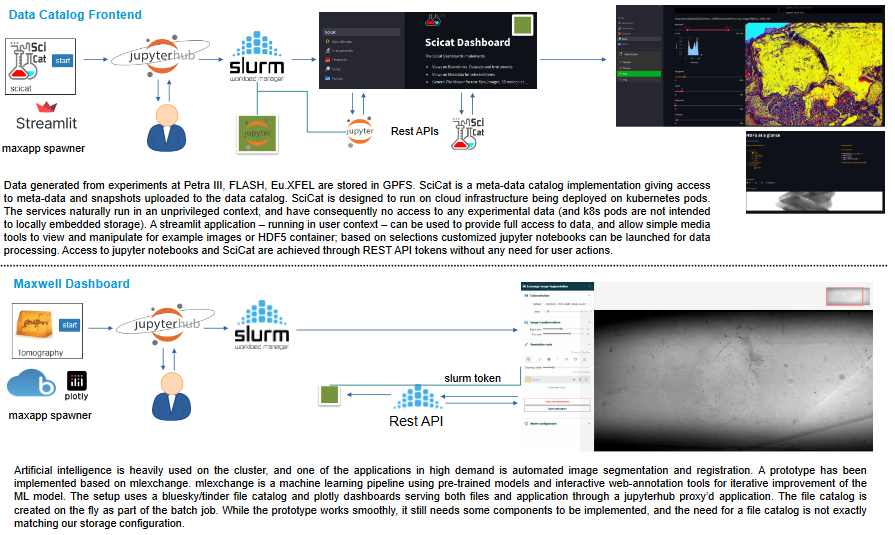Abstract
 |
Jupyter notebooks are great tools to mitigate the complexities of (heterogeneous) HPC systems, like the Maxwell cluster at DESY which serves the computational needs of all user facilities on campus, as well as a wide variety of applications ranging from plasma accelerators to quantum chemistry. We aim to expand the Jupyter ecosystem using frameworks like streamlit to provide application environments tailored to the needs of less experienced users, including real- time visualization capabilities. On this basis we are implementing for example Jupyter-driven remote desktops, user-friendly dashboards to compose or monitor batch-jobs, and visual frontends for data catalogues like SciCat. The implementations are accompanied by visual tools for resource utilization and CO2 footprints suitable both for users as well as admins. |
Yves Kemp et al., Leveraging Jupyter on Maxwell HPC: joyful, visual and green computing, Digital Total - Poster